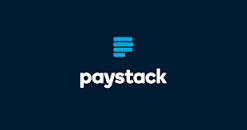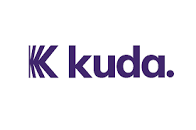Part 1 – 10 Fintech Companies Founded By Nigerians

The Nigerian Fintech industry has been growing consistently in the last decade. The industry has received the most Venture capital funding than any other sector in Nigeria. By the end of 2022, Nigeria recorded over 110 fintech companies to her credit. An exact number cannot be pegged, as new Fintech start-ups continue to spring up, and not all are registered members of the FAN (Fintech Association Of Nigeria).
The term "Fintech" is coined from the words "Financial Technology". Fintech companies use all kinds of technology including computer programming, software, web, and mobile applications, to produce automated financial services and products. Fintech allows businesses and individuals alike to digitally make varied financial decisions. Fintech company services span across but are not limited to payment, lending, savings, investment, and budgeting.
Below are top fintech companies founded and co-founded by Nigerians:
1. Paystack
Paystack is a fintech company offering payment processing services to businesses. It was founded in 2015 by Ezra Olubi an IT expert and Shola Akinlade, a software engineer and entrepreneur. Headquartered in Lagos, it became the first Nigerian company to be accepted into the startup accelerator Y Combinator.
Paystack raised seed funding to the tune of $1.3 Million from investors in 2016, and two years later $8 million dollars from funding led by Stripe. Pay stack was recognized as one of the fastest-growing fintech companies in 2018, by CBIN. In 2020 Paystack was acquired by Stripe for over $200 million to extend its reach in Africa. Stripe remains its parent company to date.

Notably, Paystack partnered with Xero, Woocommerce, Shopify, and Apple pay between 2016 and 2022. They reported over 60000 businesses in Nigeria and Ghana including Jumia, Konga, Taxify, Bet9ja, and Domino's to benefit from their services before acquisition.
2. Interswitch
Interswitch is a payment and digital commerce fintech company. It was founded by Mitchell Elegbe in 2002, with its headquarters in Lagos. Interswitch was borne out of a need for Mitchell to create an electronic payment infrastructure for Nigerians. The company received assistance from Accenture to launch operations after some uninterested players didn't buy into the software. It is one of the oldest fintech companies and is responsible for launching two subsidiaries, Verve in 2009 and Quickteller in 2010.
In 2010, Interswitch sold two-thirds of the company to a consortium led by Helios Investment Partners and in 2011, they took a 60 percent stake in Bankom, Uganda. They have since, partnered with Discover Financial Services. for payment processing in 2013, and acquired a majority shareholding in Paynet Group the following year.
By 2015, their valuation had grown so much, they gave back to the fintech payment industry by launching a $10m investment fund for African start-ups.
3. Piggyvest
Piggyvest is a savings and investment platform and they take the crown for being the first of its kind in Africa. It was founded in 2016. They first started as "Piggybank", which was a savings-only app, but expanded into investment as well with the new name "Piggyvest" in 2019.
Piggyvest founder, Odunayo Eweniyi said in an interview that she got the idea for this savings platform from a viral tweet in 2015. The viral tweet described how someone saved N1000 daily in a wooden box (locally known as Kolo or piggy bank) for a year and broke it at the end of the year. She got the initiative to make a digital savings product that would compel users to save efficiently like that. They recorded 400 active users in the first year and in 2017 they partnered with a commercial bank to scale up.
Piggyvest got connected to investors including Village Capital And Leadpath Nigeria from accelerator programs. They also received $1.1 Million in seed funding via Google Launchpad in 2018. The company experienced rapid growth after various partnerships and funding were received. They went from saving ₦700 million for users at the end of 2017 to ₦4.5 billion in 2018. The Co-founder, Joshua Chibueze said in an interview that by January 2019, they had saved ₦1 billion for users and paid back ₦90 billion in 2020.
In 6 years they have enabled over 4 million users to save billions they would easily have spent. Their app automatically deducts savings according to user specifications, suggests investment schemes, and accrues interest on both savings and investments. Piggyvest remains an exemplary personal finance management platform in Nigeria and Africa.
4. Kuda
Kuda bank was founded in 2019 by Babs Ogundeyi and Musty Mustapha. It is a fintech company that provides banking services – saving, sending, investments, and loans – like that of commercial banks.
In 2017, the brand was first known as Kudimoney, which was an online lending platform that issued loans in one hour, faster than its competitors at the time. Kuda participated in the Startupbootcamp accelerator in 2018 under its former name. By 2019, they were first among FinTech startups in Nigeria and had secured a banking license from CBN.

In September 2019, the founders raised $1.6 million in pre-seed funding after going public. They launched a web version of their product in 2020 and partnered with Payoneer. They recorded over 300,000 users to their credit at that time. The brand used social media to speak in one voice with the well-meaning youths of Nigeria, throughout the END SARS movement. Allegiance with their brand continued to increase since then. In the same year, Kuda was able to raise $10 million in seed funding led by Target Global.
Kuda raised even more in 2021, $25 million, in Series A funding led by Peter Thiel’s Valar Ventures. Their customer base increased to 650,000 and they had processed over $2.2 billion in transactions early that year. In the following Series B funding Kuda was valued at $ 500 million and raised $ 5 million in funding.
They crossed the mark of 2 million customers by the end of 2021. Kuda was listed as one of the seven WEF African technology startups that year. Kuda continues to offer banking services free from maintenance charges, including short-term loans. They have a partnership with Visa for issuing their own debit cards.
5. Flutterwave
Flutterwave is a fintech company founded in 2016, by Olugbenga Agboola and Iyinoluwa Aboyeji. They provide payment infrastructure for businesses through easy-to-use APIs. Developers can integrate and leverage various payment functions through flutterwave APIs. They received licenses from the CBN to process transactions between banks and cards without intermediaries. Flutterwave also issues globally accepted physical and virtual cards.
The company raised $ 10 million in its Series A funding in 2017. They enable over 1 million businesses to sell online, process payments, use tools for growth, and build financial products. Some of these businesses are Piggyvest, Microsoft, MTN, Uber, Jiji, Andela, and Chippercash. So far, over 300 developers have integrated with Flutterwave APIs, and 14+ transactions have been processed to the tune of $1.5 billion.

In 2019, they expanded their service by launching a digital store for medium and small-scale businesses to display their products for the online market. They enrolled over 20,000 businesses in the peak of the Covid-19 lockdown, for free. These businesses were able to use the flutterwave e-commerce website to open stores and start selling.
Flutterwave has more than 70 investors including Mastercard, Y-combinator, VisaVentures, Tiger Global Management, and, Avenir Growth Capital. They were one of the first three fintech companies to hit the $1 billion valuation mark in Nigeria. Their Series C funding generated US$170 million in 2021, and the following Series D in 2022, over $250 million. By the end of 2022, Flutterwave valuation was over $ 3 billion.
Nigeria's fintech achievements are impressive. Any Nigerian in the tech industry or others may find the above facts of each company's growth and story as inspiration. They all started small and are performing in larger capacities today.
The concluding part of this article is available in our next blog post.



